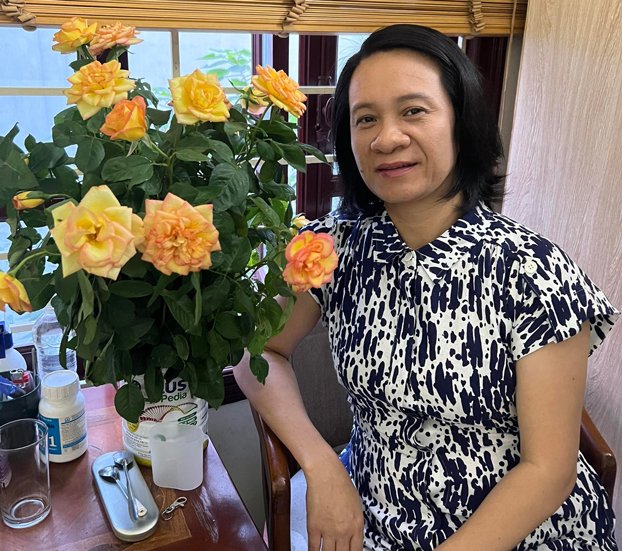
Human rights groups welcomed last week’s early release of Vietnamese environmental activist Nguy Thi Khanh, who was imprisoned on tax evasion, saying that international pressure to free her influenced authorities’ decision to free her.
But her release also came after sources told Radio Free Asia that her family paid a 10% tax on Khanh’s US$200,000 award for receiving the 2018 Goldman Environmental Prize – tax that she was convicted of withholding from the government.
Khanh, an opponent of Vietnam’s reliance on coal power and executive director of the environmental NGO Green Innovation and Development Centre, was arrested in January for failing to pay the tax on her prize money.
After she was sentenced in June 2022 to 16 months in prison, her family paid 456 million Vietnamese dong in taxes on the award, according to two activists from Hanoi with knowledge of the situation but requested anonymity for safety reasons.
Last week, Khanh was released five months early from her 16-month prison sentence.
Vietnamese authorities have long harassed, intimidated and arrested environmental advocates, human rights defenders and others working peacefully on issues of public interest to silence them and the purported threats they pose to those in power.
“Endless happiness to be back in the midst of family’s love, to meet and hug loved ones after 16 months of being isolated,” she wrote on May 13 on her Facebook account “KhanhGreenid Vietnam,” which has nearly 4,000 followers.
“Sincere thanks to everyone who has cared, shared, and helped me personally and my family during the past year and a half,” said Khanh, whose organization promotes the use of renewable energy in place of coal.
Khanh told Radio Free Asia on Monday that she was healthy, but declined to comment further.
"Pressure campaign"
Since Khanh’s arrest, many foreign governments, including those of the United States, United Kingdom and Canada, as well as many international organizations and 52 other Goldman laureates, protested her arrest and called on Hanoi to release her.
Phil Robertson, deputy Asia director of Human Rights Watch, agreed that Khanh’s early release resulted from a concerted international advocacy campaign on her behalf by a coalition of environmental groups, human rights organizations, and Vietnamese rights activists who called out the injustice of her conviction.
“It looks like Hanoi decided to cut their losses and let her go early to try and escape that growing pressure campaign,” he told RFA in an email.
Last June, after Khanh’s first-instance trial, the International Federation for Human Rights, or FIDH, and the World Organization Against Torture, or OMCT, issued a joint statement, calling on the international community raise concerns over her cases and those of three other Vietnamese environmental activists — Dang Dinh Bach, Mai Phan Loi and Bach Hung Duong — also detained on tax evasion charges.
They all advocate the development of clean energy such as wind and solar power plants and less dependence on thermal coal-fueled projects.
Andrea Giorgetta, FIDH’s Asia director welcomed Hanoi’s decision to release Khanh, saying she should not have spent time in jail on “for a ludicrous prosecution on tax evasion charges.”
“Khanh was freed amid a sustained international campaign for the release of imprisoned environmental activists in Vietnam, which shows Vietnam’s government is responsive to external pressure,” he said.
Vietnamese state media in Vietnam did not cover Khanh’s early release, though they heavily reporting her first-instance trial in June 2022 and appeal hearing which took place five months later.
Attorney Ha Huy Son from the Hanoi Bar Association said the activist’s early release was in line with a statute in Vietnam’s 2015 Penal Code that allows authorities to reduce criminal offenders’ sentences if they have served at least half of their jail term, admitted their wrongdoing, and followed prison regulations.
According to the procuracy’s indictment, Khanh used her award money for personal use and bought property to use as an office for her environmental organization without filing personal income tax in accordance with Vietnam’s law and failed to pay what she owed the government from the prize money.
Translated by Anna Vu for RFA Vietnamese. Edited by Roseanne Gerin and Malcolm Foster.
